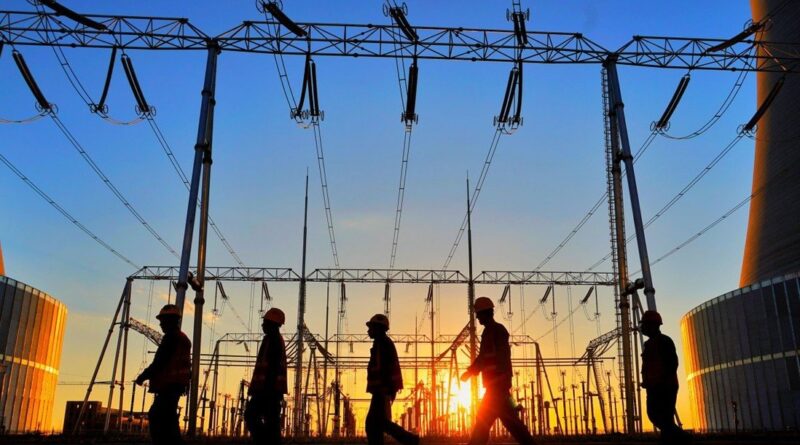Ramaphosa’s electricity reform lacks necessary liberalisation
President Cyril Ramaphosa’s electricity liberalisation announcement, as with previous announcements, is a welcome event. But, again as with Ramaphosa’s previous initiatives, does not go far enough. South Africa desperately needs real freedom of enterprise in the choice of sources of energy and in competition for consumer favour, before rolling blackouts can be defeated.
South Africa’s economy has not grown in any meaningful sense in recent years, especially following the destructive lockdowns imposed since March 2020. Indeed, demand for electricity has not skyrocketed due to more economic activity. Yet the frequency and severity of rolling blackouts have increased.
There is, in other words, an institutional, not ad hoc, problem with electricity generation in South Africa.
The Free Market Foundation has identified section 8(1) of the Electricity Regulation Act as the source of this institutional problem. The Act provides that “nobody” may generate, transmit, distribute, or trade in electricity without a licence. The Act ought to be amended and the word “nobody” be replaced with “anybody.” This would be the beginning of a free market in electricity.
Of course, there are some technical adjustments that are necessary to make such a regime safe and efficient, but that’s something NERSA and Eskom must deal with in-house, and not burden ordinary South Africans, communities, or firms with.
President Ramaphosa refers to the reforms that will be introduced by the new Electricity Regulation Amendment Bill as “radical.” But while the Amendment Bill does have some redeeming qualities, it falls short of the Free Market Foundation’s truly radically-transformative proposal.
The Amendment Bill does not currently depart, in any significant way, from the regulatory mindset that landed South Africa in this powerless situation in the first place. In fact, some provisions double down on overregulation.
Ramaphosa has, further, overhastily already declared the limited reforms from 2020 and 2021 to be a “success.” Allowing municipalities to procure power independently, and allowing 100 MW private generation, has “fundamentally changed the generation landscape,” he says, because new generation projects might in the future have a combined capacity of over 6,000 MW.
None of this has translated into reality yet, so the President is getting ahead of himself. We have had more loadshedding this year than ever before.
Nonetheless, the announcement that the arbitrary 100 MW cap on private generation (that does not require a licence) will be completely removed is a welcome reform, as it will allow private power producers to generate at scale.
Wholesale liberalisation of electricity, encompassing demonopolisation, deregulation, and privatisation, is how South Africa gets out of this mess. But even partial liberalisation, as is evident in Ramaphosa’s speech, is better than no liberalisation.
Indeed, it was refreshing for the President to acknowledge the spectre of overregulation. That it takes a power generation project years to be approved “due to lengthy regulatory processes and red tape” is unacceptable.
As a result, legislation that liberalises electricity regulation will be introduced.
The partiality of the liberalisation is manifest, however, in the President’s proposal that the legislation be of a “special” character, which implies that it will only apply temporarily. This should be resisted. “Temporary” legislation creates regulatory uncertainty and does not allow investors and firms to plan into the future.
The President also unfortunately stopped short of announcing an end to local content requirements, instead skirting the issue by announcing a “pragmatic approach.” Any such extraneous requirements must be repealed forthwith. Only market-related considerations, not political imperatives, must guide new electricity providers.
That households with excess power from their solar panels will now be able to sell that electricity to the grid, via a feed-in tariff, is also a very good move. According to the Solidarity Research Institute, in its recent report on loadshedding, this is how Vietnam solved its 2007 electricity crisis. In other words, there is international precedent that this is the correct decision.
The renewed commitment to splitting Eskom into three State-owned enterprises (separate generating, transmission, and distribution entities) was the anticlimax of Ramaphosa’s announcement. Having new State-owned enterprises (SOEs) should send shudders down any South African’s spine.
The non-market incentive structures built into Eskom’s bones cannot change for as long as it remains an SOE, and this means it will necessarily operate inefficiently and according to the dictates of political expediency.
The problem with Eskom has never been that it is vertically integrated. The statist incentive structure, coupled with South Africa’s disappointing public-service ethics, are the causes of Eskom’s failure. Splitting Eskom into three solves neither of these problems, and in fact has the potential to exacerbate them.
In other words: Two more companies with perverse incentives that will necessarily be inefficient, two more companies to loot and mismanage. If the State wants a power utility, it should have only one, which at the same time must not be afforded any State monopolies or privileges.
Privatisation, although a less important aspect of liberalisation, remains important. We do not strictly need Eskom to be privatised to escape the electricity crisis. Eskom can remain entirely unchanged, except for its monopoly which must be withdrawn. That being said, we would be in a better position, quicker, if the private sector were placed in charge of this utility without having to answer or listen to unethical or incompetent politicians.
That Eskom would not be privatised was not the only problem with Ramaphosa’s plans for the utility, as indeed the President did not relieve Eskom of its coal and nuclear monopoly. As the only utility allowed to generate electricity from those sources, Eskom will always be the main source of South Africa’s power; and that is an intolerable reality. Any firm must be allowed to generate power from those sources.
Eskom CEO André de Ruyter has said such private power producers – who seek to generate power from coal or nuclear sources – would not receive funding or insurance. If that is what economic forces dictate, so be it. But De Ruyter or an economic analyst cannot decide that.
It might well be that some consortium of maverick investors is willing to buck the international trend and fund several nuclear power stations across South Africa. Only they can make that decision, and no government policy should stand in their way. This includes the environmental impact assessments that are required for such projects to be approved.
Ramaphosa goes out of his way to emphasise the urgency of adding new capacity to the grid, while remaining committed to severely limited sources of electricity. The President reminds us that South Africa has a “great abundance of sun” but seems to ignore the great abundance of coal and uranium that we also possess.
It is socially detached for Eskom, NERSA, government, and many in civil society, to still be debating what South Africa’s energy mix should look like. We are having a candle-lit debate, surrounded by darkness, about whether South Africa should utilise green energy or fossil fuels.
Surely the time for a debate is over – temporarily, at least. All engines must be running at full power to end the electricity crisis. We must burn every lump of coal, utilise every vein of uranium, frack every gas reserve, and cover every available inch with solar panels.
Once the lights are sustainably on, and South Africa has surplus generating capacity again, we can comfortably discuss what the future of energy here should look like.
Ramaphosa ends his announcement by calling on households to use electricity sparingly. This is bad advice for a developing economy. Electricity should be used as necessary. After all, our powerless situation is man-made, and the right policy framework – one of freedom of enterprise – can end the crisis in very short order. We ought not to hamstring the economy because government does not have the political will to liberalise comprehensively.
The President admits “that the actions we have taken and continue to take are not enough.” These are prescient words. While many of the announced reforms are welcome, much more is required




